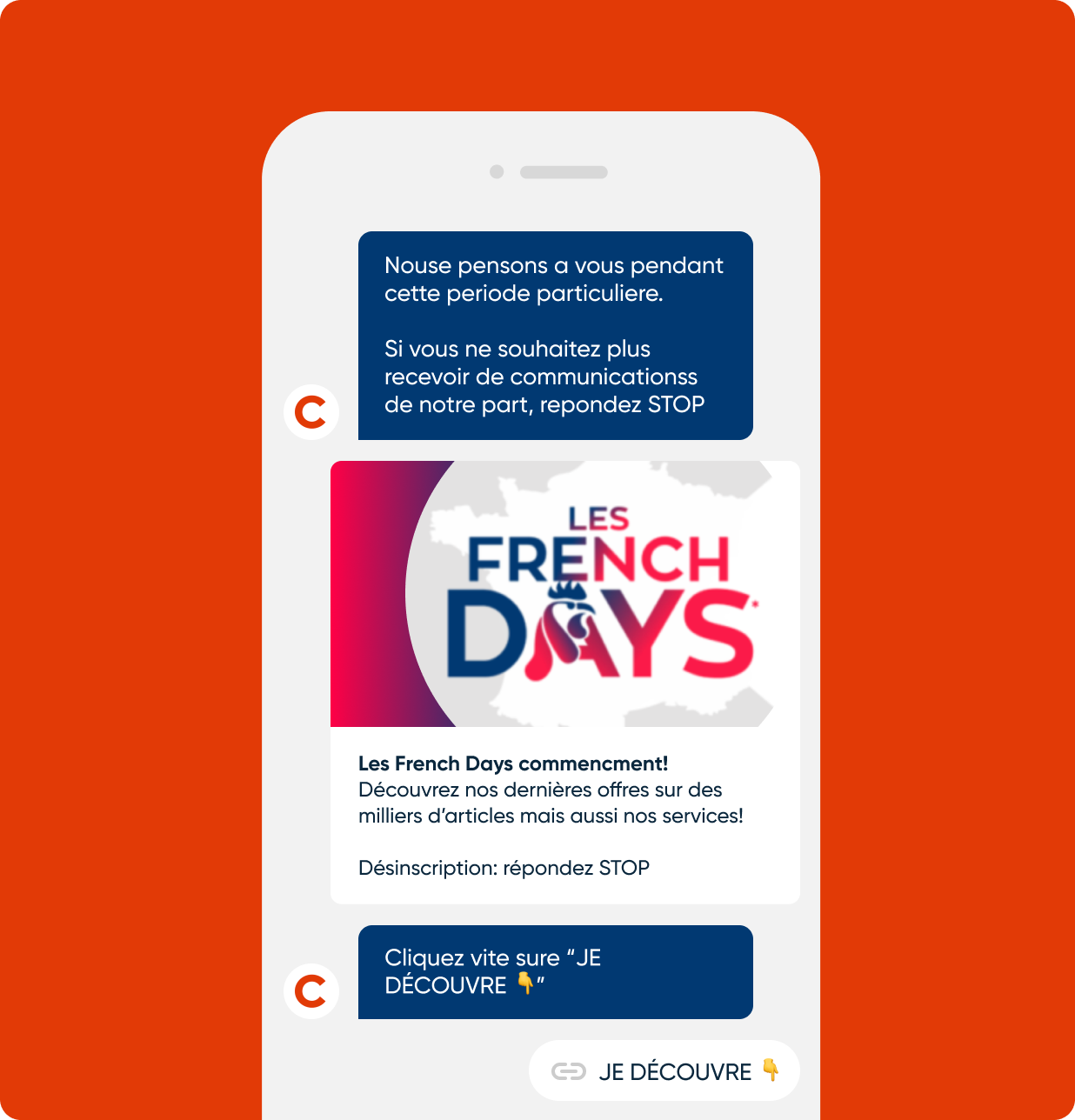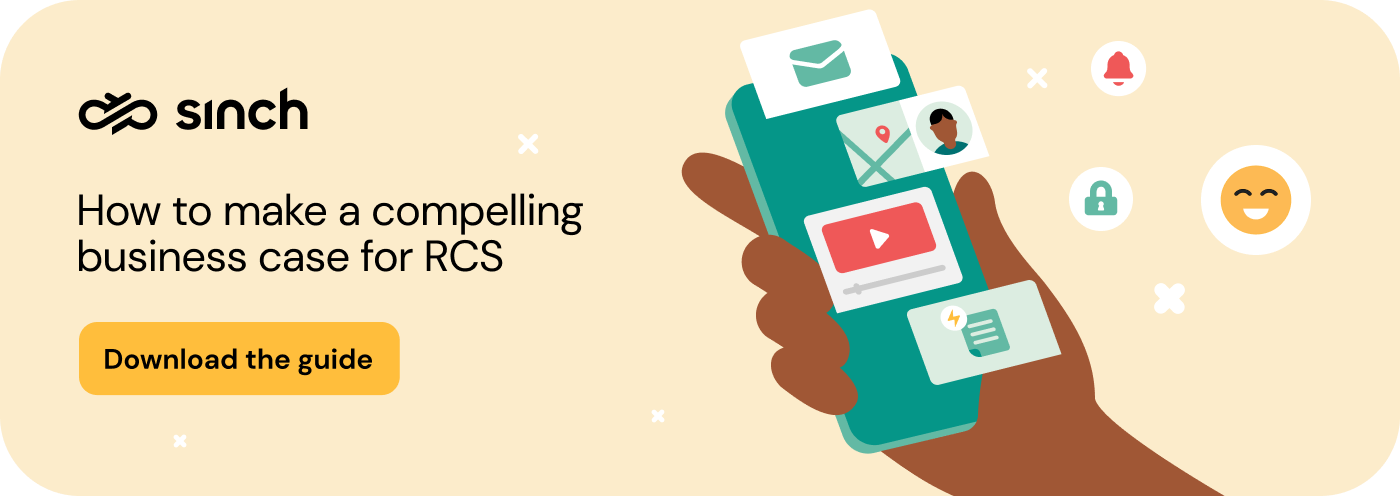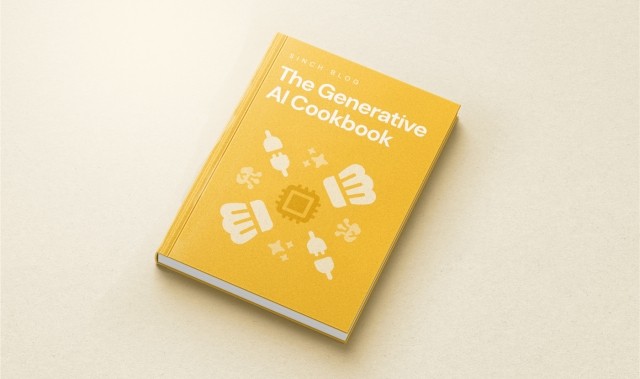As smartphones become more and more essential, mobile commerce (m-commerce) is booming, expected to reach $558.29 billion in US retail sales in 2024. And when over 60% of US adults see mobile capabilities as necessary for convenience in online shopping, it's clear that retailers must focus on improving their mobile commerce experiences to stay competitive.
This means adapting their strategies and getting creative with things like shoppable social media ads or interactive in-store features. And in the mix of all these efforts, one dynamic messaging solution stands out: Rich Communication Services (RCS).
More businesses are adopting RCS, with brands sending a mind-boggling 25,000 times more RCS messages in 2023 than the previous year. And with Apple set to support RCS sometime in 2024, it’s clear that now’s the time for retailers to jump on board.
For retail marketers, RCS offers the potential to reshape how brands connect with their audiences, and, when used strategically, can lead to reduced cart abandonment, higher conversion rates, and boosted sales.
Watch the video to understand a few of the benefits RCS has for retail brands and customers.
But how can you make the most of RCS? From crafting engaging content that resonates with shoppers to exploring an innovative new messaging channel, the possibilities for RCS in retail are nearly endless.
In this article, we’ll take you through a few ways to use RCS to make your customers feel extra special and keep them coming back for more.
Let’s get started.
1. Personalized promotions and offers
RCS is inherently personal and dynamic when brands use it to have real-time conversations with customers.
With RCS, you can curate a rich, personalized shopping experience for every customer right within their phone’s native messaging app. Using your customers' past purchases, browsing history, and preferences, you can tailor your RCS messages to offer them highly relevant product recommendations, significantly increasing their likelihood of making a purchase.
Don’t just take our word for it – take the example of ATOL, a chain of opticians in France. They used conversational RCS to guide their customers through purchasing new eyeglasses and book in-person appointments at their stores. As part of their campaign, their customers could visualize their chosen eyewear digitally before visiting a store or making a purchase.

ATOL used interactive RCS messaging to offer personalized eyeglass suggestions and invite people to visit their stores.
The brand used A/B testing to test the effectiveness of this campaign and saw incredible results. The RCS campaign had a 5x higher click rate than Rich SMS, and a 99% increase in conversions to make an in-store appointment compared to Rich SMS.
This level of personalization not only enhances the customer experience, but also demonstrates to ATOL’s customers that they truly understand and value each customer’s preferences and needs.
2. Dynamic product catalogs
Imagine you’re sitting on the train or relaxing at home, browsing through your mobile messages. Suddenly, a burst of color grabs your attention – it’s an RCS message from your favorite, trusted brand and includes a showcase of their latest products in a dynamic catalog.
As you swipe through the carousel of new arrivals, you click through different color options and discover complementary products, making it feel like you’re strolling through a virtual store right from the comfort of your train seat or couch. And the best part? The engaging format of the message makes you eager to take action and make a purchase.
With RCS product catalogs, your subscribers can feel this way too! This approach to online shopping is a simple and convenient way to let them discover new favorites from your brand with just a few clicks.
If you need some guidance on what this might look like, take a page from frozen food retailer Picard’s book. They created a conversational RCS experience to help their customers imagine their holiday menus, taking into account their customers’ dietary preferences, budget considerations, and even their desire to cook. Bon appétit!
Watch the video to learn how food retailer Picard used RCS to create an interactive catalog their customers could use to imagine their holiday menus.
Picard’s campaign achieved remarkable results, with a click-through-rate 3x higher than that of Rich SMS and 10% more website redirections than Rich SMS.
Whether your customers are on their daily commute, sitting on the couch, or somewhere in between, RCS helps bring your brand right to their fingertips.
3. Exclusive offers and discounts
Retailers can use RCS to encourage repeat business through enticing offers and discounts. With personalized promotions tailored to match customers’ preferences or past purchases, your RCS messages can include early access to sales or VIP discounts. This can help your brand encourage customer appreciation and repeat purchases.
Case in point: Commercial supermarket Intermarché used RCS to make their Christmas offers front-and-center in their subscribers’ mobile inboxes.

Supermarket retailer Intermarché increased click rates and customer interest thanks to RCS’ capabilities of adding images, GIFS, videos, and text longer than 160 characters.
The results were astounding, resulting in a doubled click rate on the RCS campaign vs. industry average, and a 2.2x click rate vs. SMS. Now that’s what you can call maximized engagement!
4. Abandoned cart recovery
Let’s imagine another common scenario: you’re browsing your favorite brand's website and adding items to your cart. But before you can hit “checkout,” a distraction pulls you away.
Suddenly, your phone buzzes with a notification from the store, reminding you about the items waiting in your cart. Luckily, there's a direct link provided that you can click, return to your cart, and complete your purchase. Plus – the brand included a limited-time discount, so you’re incentivized to complete the purchase as soon as possible.
This is the kind of seamless experience that retailer marketers can create with RCS. Ready for an example? Take the case of Cdiscount, a major French e-commerce platform. They used RCS to send customers holiday offers and deals that included images, CTAs, videos, and guided responses in their messages.

Cdiscount's personalized RCS messages helped grab and keep their customers’ attention on their offers.
Thanks to their RCS campaign, Cdiscount saw a 9% increase in average basket size as compared to previous campaigns.
5. Loyalty programs
A robust retail strategy isn’t complete without a loyalty program to keep customers coming back for more. For many retailers, loyalty programs are crucial components of a strategy that drive repeat purchases and create long-lasting relationships with customers.
Retailers can take loyalty programs to the next level with personalized RCS messages. These messages can keep customers informed about the rewards they’ve earned, updates on their loyalty points balance, and so much more. RCS also offers users the added convenience of redeeming rewards directly in their native messaging app.
Here’s some inspiration to help you create a stellar RCS loyalty program: Citadium, a fashion retailer, wanted to improve revenue during the busy Black Friday period compared to the previous year. To diversify their communication approach with loyal customers, who’d only received SMS in the past, they turned to RCS.

Citadium used RCS to offer discounts and rewards to subscribers.
Their campaign had impressive results, with a 22% increase in conversions and 85% engagement rate! Particularly effective for Black Friday marketing initiatives, RCS can help retailers connect and interact with customers.
Strategic advantages that make RCS perfect for retail campaigns
RCS offers a competitive edge against SMS, especially when it comes to customer personalization and impacting business goals. Here's why.
Enhance market reach
Retail marketers can use RCS to connect with a broader audience and ensure wider coverage for campaigns. One of the key strengths of RCS is its interoperability between mobile networks, making it incredibly convenient for users.
As we mentioned before, RCS will soon become more widely accessible with Apple slated to support it sometime in 2024. The potential for widespread adoption is enormous, particularly because Android is the most popular messaging system in the world with over 2.5 billion active users. And this number is set to grow, because all modern Android phones ship with Google Messages as the default texting app, which includes RCS.
Practice conversational commerce
A few pieces of research speak volumes about the effectiveness of RCS in driving engagement and conversational commerce:
-
Messages with photos generate a higher CTR, with images resulting in a 52% higher click-through rate.
-
Button CTAs can increase conversions by over 32%.
-
Quick-reply options can help streamline the decision-making process for consumers and guide them towards specific actions.
-
Mobile messaging can significantly cut down the costs of customer service, while the cost of an RCS conversation is usually no more than two A2P SMS messages.
-
Some retailers have seen campaigns with a 100% increase in click-through-rate compared to SMS equivalents, and a 200% increase compared to email.
Plus, RCS provides useful read data, letting your business see how many people read your messages. This, coupled with RCS’ inherent two-way communication features, can help create a sense of trust and encourage action, such as making a purchase.
Build trust and loyalty with verified senders
For retail marketers, the verified profile feature in RCS is invaluable. Each message includes the brand’s official, verified rich sender profile, providing all customers with visual assurance of authenticity.

A verified profile visually assures users, minimizing messages being mislabeled as spam.
Subscribers are assured that messages sent from a brand are legitimate, from promotional offers to delivery notifications, building trust and loyalty throughout their entire experience.
Elevate your omnichannel strategy
RCS offers a great opportunity for retail marketers to use mobile marketing with existing marketing channels like social media, e-mail, and in-store promotions for a more holistic omnichannel experience.
Just keep in mind – consistent messaging is key! No matter where your customers interact with your brand, having a cohesive identity and message across all channels will ensure a memorable experience.
Robert Gerstmann, co-founder and Chief Evangelist at Sinch, breaks down the benefits of RCS for retailers: improved branding, customer trust, efficiency, cost-savings, and offering an app-like experience in every interaction.
Get started with your RCS retail strategy
RCS can help retailers craft compelling narratives that resonate with customers during peak holiday periods and year-round with personalized product recommendations tailored to individual preferences, interactive experiences, and so much more.
Intrigued? We don’t blame you. Dive into the world of RCS with our comprehensive guide, designed to help you seamlessly integrate RCS into your retail strategy and elevate customer engagement.

Or, if you’re ready to dive into all things RCS, let’s chat. Our team is excited to explore the endless possibilities of RCS for your unique customers’ needs!



